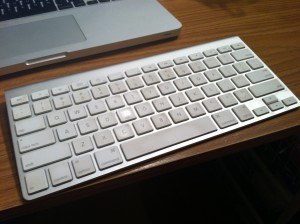Assessment is a practice that continues from session to session and moment to moment. Formally, assessment happens at the beginning stages of treatment. In order to evaluate a client and his or her state on a meaningful level, assessment has to recur; it’s just that sometimes it isn’t termed “assessment.”
One of the facilitators of the clinical improvisation course I took at our Great Lakes Region conference sent along an article on assessment called “Music Therapy Assessment: Psychological Assessment Without Words,” by Tony Wigram. The article, published in Psyke & Logos in 2007, looks at the reasons behind assessment, and how assessment can be defined and categorized. Admittedly, I’ve not read the whole article yet, but I was struck by one list that was shown (page 339). Wigram shows music therapy pioneer Juliette Alvin’s lists for assessing responses to music therapy. Specifically, the list “instrumental responses” was what I enjoyed the most; I’ve been working with instrumental responses with some of my clients a lot lately, and this list helps me clarify even better what I have been doing. Some items on the list include, “the clients’ understanding of cause-effect relationships on the instruments,” “whether obsessions or compulsions are expressed through the instruments,” and “whether instrument playing is purposeful or random” (Psyke & Logos, 2007, 28, 339).
Of course there are several other items on the lists that I consider to be really important, but these are some that I might look at with some more care.
What kind of assessment tools do you use? I’m curious.



